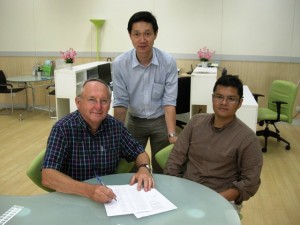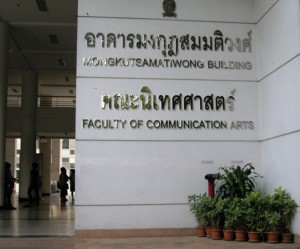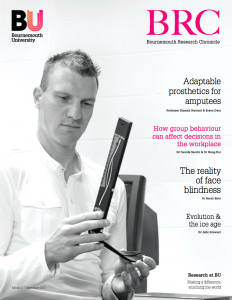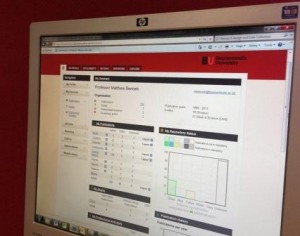 Throughout the world societies, their citizens, and those excluded from them are facing many challenges concerning identity and citizenship, social and cultural adaptation, and responding to growing social and global inequalities. In a time of protracted economic, political and social uncertainties the BU research theme Communities, Cultures and Conflicts offers a forum for taking individual and integrated, inter-disciplinary approaches these issues. to exploring, which explicitly involves learning from past communities and peoples, we are looking to expand future research collaboration around such issues as:
Throughout the world societies, their citizens, and those excluded from them are facing many challenges concerning identity and citizenship, social and cultural adaptation, and responding to growing social and global inequalities. In a time of protracted economic, political and social uncertainties the BU research theme Communities, Cultures and Conflicts offers a forum for taking individual and integrated, inter-disciplinary approaches these issues. to exploring, which explicitly involves learning from past communities and peoples, we are looking to expand future research collaboration around such issues as:
- Sustainable growth & cultural transformation
- Cultural adaptation & globalisation
- Communication, culture and society
- Equality, diversity & governance
- Conflict, violence & warfare
- Welfare & social protection
- Media as an agent of socio-cultural & political transformation
- Crisis management & disaster planning
Perceptions of conflict, vulnerability and the development of social welfare in the context of political violence and extremism forms part of our research theme’s work, as has consideration of difference and diversity across cultures and communities whilst considering the implications of this for contemporary fluid communities. Research has been completed in respect of Central European, Southeast Asian as well as UK communities
Our internationally renowned Disaster Management Centre offers education and training to organisations in risk assessment and risk reduction, major incident management & business continuity, and disaster recovery. We also offer one-day major incident management workshops for school bursars, headmasters and deputy headmasters (www.bournemouth.ac.uk/disaster-management).
We have clusters of researchers exploring ways of deepening democracy through developments in political communication and in the production and consumption of news. There are also research groups investigating trends in consumer culture (especially in digital consumption), studying the histories of the media industries and the communication professions as a way of understanding their present state and possible futures, and researching cultural narratives.
The multiple facets of identity, social inequality, conflict, and resource availability are narratives with a long time depth. Archaeology and anthropology have the theoretical frameworks and analytical tools to detect and contextualise these for societies of the past and, by doing so, enrich the debate about some of the fundamental and universal themes of humanity. An understanding of such aspects in the past has repercussions for our perceptions of similar issues today and vice versa.
Contributions from ‘Past Peoples and Societies’ may develop around questions such as: What are the determinants of societal continuity and change and their effect at the level of individuals and communities? How does adaptation reflect the dual, biocultural nature of humans? How do population development, migration and transitions shape communities and cultures? What is the impact of human-environment interaction and technological response?
The National Centre for Post-Qualifying Social Work is at the forefront of post-qualifying social work educational provision in England, working in partnership with 80 local authorities. We are one of the few CPD providers endorsed by The College of Social Work (TCSW) to provide post-qualifying social work education. We offer a range of CPD programmes in specialist areas such as Child Care, Vulnerable Adults, Approved Mental Health Practice, Practice Education, and Leadership and Management, and are committed to developing excellence in post-qualifying education, practice development and research. We undertake research and evaluation studies for a range of local, regional and national bodies (www.ncpqsw.com).
Prof Jonathan Parker
School of Health and Social Care
Sign up to the Communities, Culture and Conflicts research themes here:


























 Beyond Academia: Exploring Career Options for Early Career Researchers – Online Workshop
Beyond Academia: Exploring Career Options for Early Career Researchers – Online Workshop UKCGE Recognised Research Supervision Programme: Deadline Approaching
UKCGE Recognised Research Supervision Programme: Deadline Approaching SPROUT: From Sustainable Research to Sustainable Research Lives
SPROUT: From Sustainable Research to Sustainable Research Lives BRIAN upgrade and new look
BRIAN upgrade and new look Seeing the fruits of your labour in Bangladesh
Seeing the fruits of your labour in Bangladesh ECR Funding Open Call: Research Culture & Community Grant – Apply now
ECR Funding Open Call: Research Culture & Community Grant – Apply now ECR Funding Open Call: Research Culture & Community Grant – Application Deadline Friday 12 December
ECR Funding Open Call: Research Culture & Community Grant – Application Deadline Friday 12 December MSCA Postdoctoral Fellowships 2025 Call
MSCA Postdoctoral Fellowships 2025 Call ERC Advanced Grant 2025 Webinar
ERC Advanced Grant 2025 Webinar Update on UKRO services
Update on UKRO services European research project exploring use of ‘virtual twins’ to better manage metabolic associated fatty liver disease
European research project exploring use of ‘virtual twins’ to better manage metabolic associated fatty liver disease